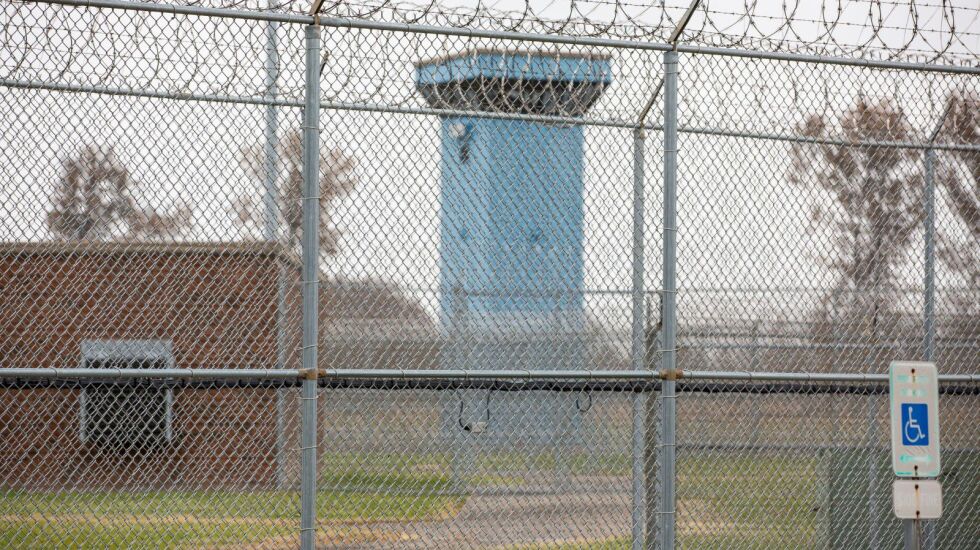
Illinois Department of Corrections Director Rob Jeffreys is stepping down after nearly four years heading up the state’s prison system. Department of Corrections Chief of Staff Latoya Hughes will serve as the acting director while the state searches for a permanent replacement.
Jeffreys inherited a department plagued with a troubled health care system, civil rights lawsuits and staffing challenges. He oversaw the department during a tumultuous time that included a global pandemic and major criminal justice reform. Jeffreys said it was an honor to lead the department “through unprecedented departmental and societal challenges.”
“Throughout my tenure, the department and employees at all levels embraced reform as an opportunity and worked tirelessly to positively change the lives of those incarcerated while maintaining the safety and security of our facilities,” Jeffreys said.
When Jeffreys took the helm in 2019, the department was already under federal oversight for its poor health care system and faced a lawsuit over its use of solitary confinement. The consent decree remains in place and the solitary confinement lawsuit is ongoing. Alan Mills, executive director of Uptown People’s Law Center, is one of the civil rights lawyers behind those cases.
Mills said Jeffreys came to Illinois with plans for reform, but his impulses were defeated by IDOC’s “weaponized incompetence, where the knee-jerk response to any change is ‘we can’t do that.’”
“Too many desperately ill people remain in prison, without adequate treatment. Far too many people remain locked in cells, with nothing to do, 20-plus hours a day,” Mills said. “I hope the next director is able to effectively implement the many changes Illinois desperately needs to alleviate the suffering of thousands of people in its prisons.”
Perhaps the largest challenge of Jeffreys tenure was the COVID-19 pandemic. Prisons across the country struggled to contain the virus in tight prison quarters, where contagious diseases spread quickly. Jeffreys met resistance when he pushed guards to get vaccinated against the virus. His administration also oversaw the court-mandated release of more than 1,000 prisoners at risk of infection. As of December 2022, 90 people in Illinois prisons died of COVID-19. Illinois had the 14th highest rate of COVID-19 deaths behind bars, according to a study from The Marshall Project.
When Jeffreys took over the department, the population of Illinois prisons was already declining — a trend that, thanks in part to criminal justice reforms, continued under his leadership. In 2019, around 38,000 people were behind bars. Now, it’s around 29,500. Despite the shrinking population, the department has struggled to hire enough staff to meet the needs behind bars. Incarcerated people have said the low staff-to-prisoner ratio means they get less time out of their cells to go outdoors, participate in activities, and access mental health care. And guards have complained staffing shortages have led to excessive mandated overtime and safety challenges.
Anders Lindall, a spokesperson for AFSCME Council 31, which represents most prison staff, said the union hopes “the next director will work cooperatively with our union to hire adequate staff, reduce overtime, expand rehabilitative programming, and improve workplace safety for the department’s 10,000 dedicated employees.”
In addition to poor staffing, under Jeffreys the department has battled crumbling infrastructure issues, including unsafe water and vermin in some prisons. Jenny Vollen-Katz, head of the John Howard Association, a prison watchdog group, thanked Jeffreys for taking steps to fix those long-standing issues by hiring an outside consultant to evaluate prison infrastructure. “This assessment is critical to improved planning, use of resources and addressing the realities of Illinois’ inhumane prisons. We look forward to the assessment being shared publicly,” she said.
Vollen-Katz also thanked Jeffreys for creating the Office of Reentry, which has helped people leaving prison get state identification cards and sign up for Medicaid.
Gov. J.B. Pritzker praised Jeffreys for his service.
“His work in reforming and redesigning services has given individuals in custody opportunities for advancement and improvement while also ensuring the highest level of security and care for the IDOC staff as they carry out their critical responsibilities,” Pritzker said.
Jeffreys’s last day on the job will be March 31.
Shannon Heffernan is a WBEZ criminal justice reporter.







